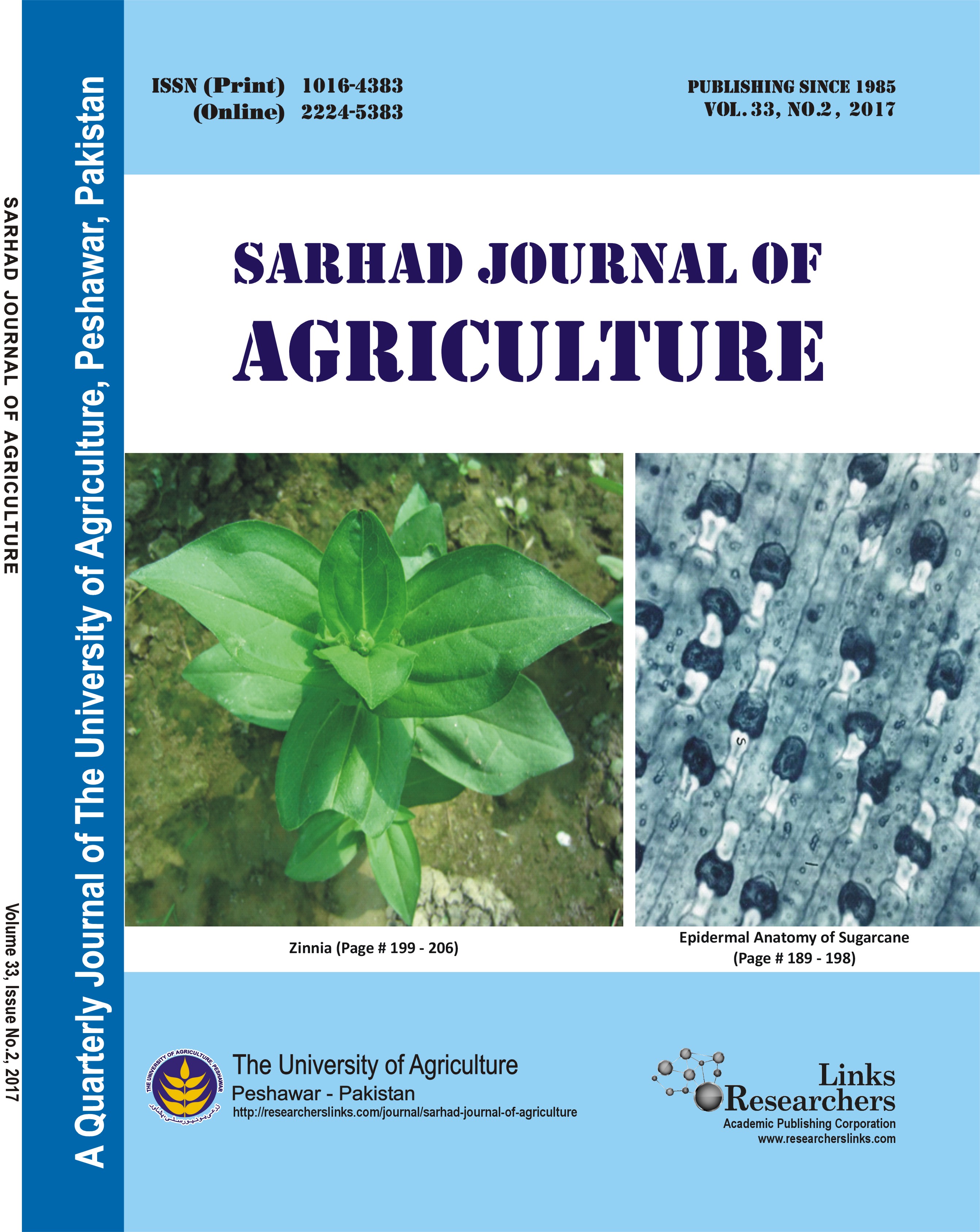Assessing the Impact of Climate Change Adaptation Strategies on Poverty Rates of Wheat Farmers in Khyber Pakhtunkhwa, Pakistan
Assessing the Impact of Climate Change Adaptation Strategies on Poverty Rates of Wheat Farmers in Khyber Pakhtunkhwa, Pakistan
Farhana Gul1*, Dawood Jan1 and Muhammad Ashfaq2
ABSTRACT
Climate change is global threat to all sectors of economy, particularly agriculture sector. Pakistan, being exposed to extreme events and low adaptation potential, is highly vulnerable to climate change. Benefits of adaptation strategies and associated impact on net farm returns, per capita income and poverty rates of wheat producers using extensive farm survey data from 150 farmers from different climatic zones of Khyber Pakhtunkhwa, Pakistan were measured in this study. TOA-MD model was used to measure the impact of climate change adaptation strategies. Adjustment in sowing time, improved fertilizer application method and increasing sowing densities were three-major adaptation practices whose benefits were analyzed. The adaptation results indicated that adopters of adaptation technology would range from 33 % to 74.47 % in Dera Ismail Khan and 62 % to 65.18 % in Peshawar. Before adaptation, poverty rates would range from 23 to 28.90 percent in D.I.Khan while from 19 to 28.62 percent in Peshawar for all GCMs. These findings concluded that proposed adaptation strategies could have significant impact to offset climate vulnerabilities in the future
To share on other social networks, click on any share button. What are these?







